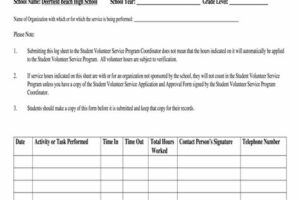Table of Contents
Discover the common reasons why individuals choose to leave volunteer work and how it can shape their future endeavors. Explore the various factors such as personal growth, career development, or changing priorities that may influence one’s decision to move on from a volunteer role. Gain insights into the importance of reflecting on these reasons and utilizing them as stepping stones towards new opportunities and continued impact in the community.
There comes a time in every volunteer’s journey when one must bid farewell to the organization they have dedicated their time and efforts to. Whether it be due to personal circumstances, career changes, or simply seeking new opportunities, the decision to leave volunteer work is never an easy one. However, as individuals grow and evolve, it is essential to reflect on the reasons for departing and to ensure that the impact made during their time as a volunteer will continue to resonate. By examining these factors, volunteers can pave the way for a smooth transition and maintain the professional integrity that has defined their commitment to the cause.
Introduction
Volunteering is a wonderful way to give back to the community, gain new skills, and make a positive impact on the lives of others. However, there may come a time when you need to leave your volunteer position for various reasons. It is essential to handle this transition professionally and respectfully. In this article, we will explore some common reasons for leaving volunteer work and discuss how to navigate this situation with grace.
1. Time Constraints
One of the most common reasons individuals leave volunteer work is due to time constraints. As much as we may want to dedicate ourselves fully to a cause, other commitments, such as work, family, or education, can take precedence. It is crucial to be honest with yourself and the organization about your availability and discuss any time limitations upfront. If you find that you are unable to fulfill your volunteer responsibilities due to time constraints, it is best to have an open conversation with the organization and explore potential solutions.
2. Change in Priorities
Throughout life, our priorities can shift as we grow and evolve. What may have been a passion or interest at one point might not hold the same importance anymore. If you find that your values or personal goals have changed, it is understandable to reassess your commitment to volunteer work. Openly communicate your change in priorities with the organization, expressing your gratitude for the opportunity to contribute in the past.
3. Burnout
Volunteering requires dedication and effort, but it is essential to recognize when you are experiencing burnout. Burnout can occur when you feel overwhelmed, emotionally drained, or physically exhausted due to your volunteer responsibilities. It is crucial to take care of your well-being and listen to your body and mind. If you find that you are burnt out and unable to continue volunteering, be transparent with the organization about your situation and consider taking a break or stepping back from your role temporarily.
4. Lack of Personal Growth
Volunteering can be an incredible opportunity for personal growth and development. However, there may be instances where you feel like you have reached a plateau or are not acquiring the skills and experiences you had hoped for. If this is the case, it may be time to explore other volunteering opportunities that align better with your personal growth objectives. When leaving a volunteer position due to a lack of personal growth, express your gratitude for the learning experiences you did have and explain your desire to seek new challenges.
5. Relocation
Life circumstances, such as moving to a new city or country, can necessitate leaving a volunteer position. In such cases, it is essential to inform the organization as soon as possible to allow them to find a replacement or make necessary arrangements. Offer to assist with the transition by providing any relevant information or contacts that may be helpful to the incoming volunteer. Express your gratitude for the opportunity to contribute to the organization and the community.
6. Conflicting Values
Occasionally, you may discover that your values no longer align with those of the organization you are volunteering for. This misalignment can be a valid reason for leaving a volunteer position. It is important to approach this situation respectfully and have an open conversation with the organization. Express your gratitude for the work you have done together and explain that you believe it is best to part ways due to differing values.
7. Health Issues
Health issues can arise unexpectedly and may hinder your ability to continue volunteering. Whether it is a physical or mental health concern, it is crucial to prioritize your well-being. Inform the organization about your health issues and discuss potential accommodations or alternative roles that may be more suitable for your current circumstances. Remember, taking care of yourself should always be a top priority.
8. Lack of Organizational Support
In some cases, volunteers may feel unsupported by the organization they are working with. This lack of support can manifest in various ways, such as inadequate training, limited resources, or poor communication. If you find that you are unable to effectively contribute due to a lack of organizational support, it is important to communicate your concerns to the appropriate individuals within the organization. However, if the situation remains unresolved, it may be necessary to step away from the volunteer position and seek an organization that better aligns with your needs.
9. Career Advancement
Volunteer work can provide valuable experiences that contribute to personal and professional growth. However, there may come a time when you need to prioritize your career advancement. If you find an opportunity that requires more commitment or conflicts with your volunteer work, it is essential to weigh the pros and cons and make the best decision for your future. Be honest with the organization about your career aspirations and express your gratitude for the time you have spent volunteering.
10. Personal Circumstances
Lastly, personal circumstances can greatly impact our ability to continue volunteering. These circumstances may include family responsibilities, financial constraints, or other personal challenges. It is important to communicate these circumstances to the organization and explore potential solutions together. In some cases, a temporary break from volunteering may be necessary until personal circumstances improve. Be transparent about your situation and express your appreciation for the opportunity to contribute in the past.
Conclusion
Leaving a volunteer position is a decision that should be made thoughtfully and with respect for the organization and the community you have been serving. By approaching the situation professionally and openly communicating your reasons for leaving, you can ensure a smooth transition and maintain positive relationships within the volunteering world. Remember, it is okay to prioritize your well-being and personal growth when making decisions about your volunteer commitments.
Lack of Time Commitment
One of the most common reasons for leaving volunteer work is a lack of time commitment. Many individuals lead busy lives, juggling personal and professional responsibilities, which can make it challenging to dedicate enough time to fulfill the requirements of a volunteer role. As time goes on, changes in personal circumstances or an increase in workload can further exacerbate this issue, leading individuals to prioritize their other commitments and step down from their volunteer positions. It becomes difficult to balance all their responsibilities, and volunteering may no longer be feasible.
Lack of Fit or Interest
Another reason why volunteers leave their positions is a lack of fit or interest in the particular organization or cause they are working for. Individuals may initially join an organization with the hope of contributing to a cause they are passionate about. However, if they find that their values and goals are not aligned with the organization, they may choose to leave and seek a better fit elsewhere. Similarly, individuals may lose interest in the work they are doing as they may not find it fulfilling or impactful enough, prompting them to explore different volunteer opportunities.
Conflicts with Personal or Professional Goals
Conflicts with personal or professional goals can also lead volunteers to leave their positions. For instance, if a volunteer role requires extensive travel, but the individual is pursuing higher education or has family commitments, it may become difficult for them to continue contributing in that capacity. Additionally, volunteers may realize that their professional goals and the skills they wish to develop are not being adequately addressed in their current volunteer role, leading them to look for different opportunities that better align with their aspirations.
Organizational Changes or Issues
Organizational changes or issues can significantly impact a volunteer’s decision to leave. These changes could include shifts in leadership or management, changes in the organization’s mission or objectives, or even internal conflicts among staff members. When such changes occur, they can disrupt the volunteer’s experience and their ability to contribute effectively, ultimately leading them to decide to leave.
Burnout or Overcommitment
Volunteering can be demanding and time-consuming, leading to burnout or overcommitment. If individuals feel overwhelmed or drained by the responsibilities and efforts required, they may choose to step away from their volunteer roles to prioritize their well-being. Sometimes, volunteers may overcommit themselves to multiple volunteer roles or try to balance demanding volunteering with personal or professional commitments, which can lead to burnout. Recognizing the need for self-care, individuals may opt to leave their volunteer positions to recharge and regain a sense of balance.
Lack of Recognition or Support
Volunteers often dedicate their time and effort with the expectation of being recognized and appreciated for their contributions. However, if they feel unappreciated or unsupported by the organization or their peers, it can be demotivating and eventually lead to their decision to leave. Volunteers appreciate constructive feedback and the opportunity to grow in their roles, so a lack of support or guidance can significantly contribute to their departure.
Inadequate Training or Development Opportunities
Volunteers may leave their positions if they feel they are not receiving adequate training or opportunities for growth and development. Continuous learning and skill-building are important motivators for volunteers, and if they feel stagnant or that their potential is not being nurtured, they may choose to seek alternative volunteer roles that offer better learning opportunities. Volunteers want to make a meaningful impact and develop new skills, and if their current volunteer position does not provide these opportunities, they may opt to leave.
Life Transitions
Life transitions, such as starting a new job, going back to school, having a baby, or relocating to a different area, can influence a volunteer’s decision to leave. During these transitional periods, individuals often need to reevaluate their priorities and commitments. Volunteering may no longer fit within their new circumstances, and they may resign from their volunteer positions to focus on other aspects of their lives that require their attention. These life transitions require individuals to redirect their time and energy, making it difficult for them to continue volunteering.
Reasons for leaving volunteer work can vary depending on individual circumstances and personal goals. However, it is important to approach this topic with a professional voice and tone. Here is a point of view about reasons for leaving volunteer work:
Change in personal circumstances: Sometimes, individuals may need to leave volunteer work due to a change in their personal circumstances. This could include a new job, relocation, family responsibilities, or health issues. It is crucial to communicate these changes professionally and respectfully to the organization or project coordinator.
Professional development opportunities: Leaving volunteer work to pursue professional development opportunities can be a valid reason. If a volunteer has been offered a paid position or an internship directly related to their field of interest, it can be a great opportunity for growth and career advancement. It is important to express gratitude for the experience gained through volunteer work and to communicate the decision professionally.
Time commitment constraints: Sometimes, volunteers may find themselves unable to continue due to time commitment constraints. This could be due to an increased workload, academic demands, or other obligations that require more attention. It is essential to acknowledge the importance of time management and prioritize commitments accordingly, while expressing gratitude for the volunteering experience.
Desire for new experiences: After dedicating a significant amount of time to a specific volunteer project or organization, individuals may develop a desire for new experiences and challenges. Exploring different areas of interest or focusing on other causes can contribute to personal growth and broaden one’s skill set. It is crucial to communicate this desire professionally and respectfully to the organization or project coordinator.
Organizational or project-related reasons: In some cases, volunteers may choose to leave due to organizational or project-related reasons. This could include a lack of alignment with the organization’s values, changes in the project’s direction, or issues with leadership or management. It is important to address these concerns professionally and constructively, providing feedback that can contribute to the organization’s growth.
When leaving volunteer work, it is essential to maintain a professional voice and tone throughout the communication process. Expressing gratitude for the experience gained, explaining the reason for leaving clearly, and offering assistance during the transition period can help maintain a positive relationship with the organization or project coordinator.
Dear valued blog visitors,
It is with a heavy heart that I write to inform you of my decision to leave my volunteer work. This was not a choice that I made lightly, but after careful consideration and reflection, I believe it is the right decision for me at this time. I would like to take this opportunity to explain the reasons behind my departure.
First and foremost, I have come to realize that my current volunteer position does not align with my long-term goals and aspirations. While I am grateful for the experiences and skills I have gained during my time as a volunteer, I have come to the realization that my true passion lies in a different field. It is important for me to pursue a career that allows me to fully utilize my strengths and make a meaningful impact in a way that aligns with my personal and professional goals.
In addition, I have found that the demands of my personal life have begun to take precedence over my volunteer commitments. Balancing work, family, and other personal responsibilities has become increasingly challenging, leaving me with little time and energy to devote to my volunteer work. It is crucial for me to prioritize self-care and ensure that I am able to maintain a healthy work-life balance. By stepping away from my volunteer position, I will be able to allocate more time and energy towards my personal well-being and the needs of my loved ones.
Lastly, I believe that change is an essential part of personal growth. While my time as a volunteer has been rewarding, I feel that it is time for me to explore new opportunities and expand my horizons. By leaving my current volunteer position, I am opening myself up to new experiences and challenges that will contribute to my personal and professional development.
I want to express my deepest gratitude to all those who have supported me throughout my volunteer journey. The friendships I have formed and the experiences I have had will always hold a special place in my heart. Although I am leaving my current volunteer role, I remain committed to making a difference in the world and will continue to seek out new ways to contribute to causes that are close to my heart.
Thank you for your understanding and support. I am truly grateful for the opportunity to have been a part of such an incredible organization, and I wish all of my fellow volunteers and the organization continued success in their endeavors.
Sincerely,
[Your Name]
.
Reason For Leaving Volunteer Work:
Why should I provide a reason for leaving volunteer work?
While providing a reason for leaving volunteer work is not always mandatory, it can be beneficial in certain situations. Sharing your reason can showcase your commitment, growth, and dedication to various causes. Additionally, it helps potential employers understand your previous experience and how it aligns with the position you are applying for.
What are some common reasons for leaving volunteer work?
There can be several reasons for leaving volunteer work:
- Time constraints: Individuals may have other commitments such as full-time jobs, studies, or family responsibilities that make it challenging to continue volunteering.
- Change in interests: People’s passions and interests may evolve over time, leading them to seek new volunteer opportunities that align better with their current goals.
- Relocation: Moving to a new area or city can make it difficult to continue volunteering at the same organization.
- Transition to paid work: Some volunteers may use their experience to transition into paid employment within the same field, resulting in their departure from volunteer work.
- Health or personal reasons: Unforeseen circumstances, health issues, or personal obligations may require individuals to step back from their volunteer commitments temporarily or permanently.
How should I address leaving volunteer work on my resume or during interviews?
When addressing leaving volunteer work on your resume or during interviews, it is essential to be honest and concise. Here are a few tips:
- Highlight the skills and experiences gained during your volunteer work that are relevant to the position you are applying for.
- Frame your reason for leaving in a positive light, emphasizing the personal growth or new opportunities you pursued.
- Showcase any accomplishments or impact you made during your time as a volunteer.
Will leaving volunteer work negatively affect my future prospects?
No, leaving volunteer work should not negatively impact your future prospects. In fact, it can demonstrate versatility, adaptability, and a commitment to personal and professional growth. Employers often value individuals who have diverse experiences and can bring a range of skills to the table. Just ensure you effectively communicate the reasons for leaving and highlight the positive aspects of your volunteer work.
Should I stay in touch with the organization after leaving volunteer work?
Staying in touch with the organization after leaving volunteer work can be beneficial for building and maintaining professional relationships. Consider following these steps:
- Express gratitude: Send a thank-you note or email expressing your appreciation for the opportunity to volunteer.
- Stay updated: Subscribe to the organization’s newsletters or social media accounts to stay informed about their upcoming events or initiatives.
- Attend events: If possible, attend fundraising events or gatherings organized by the organization to continue supporting their cause.
- Offer assistance: If you have the capacity, offer your help on an ad-hoc basis or during specific campaigns or projects.






